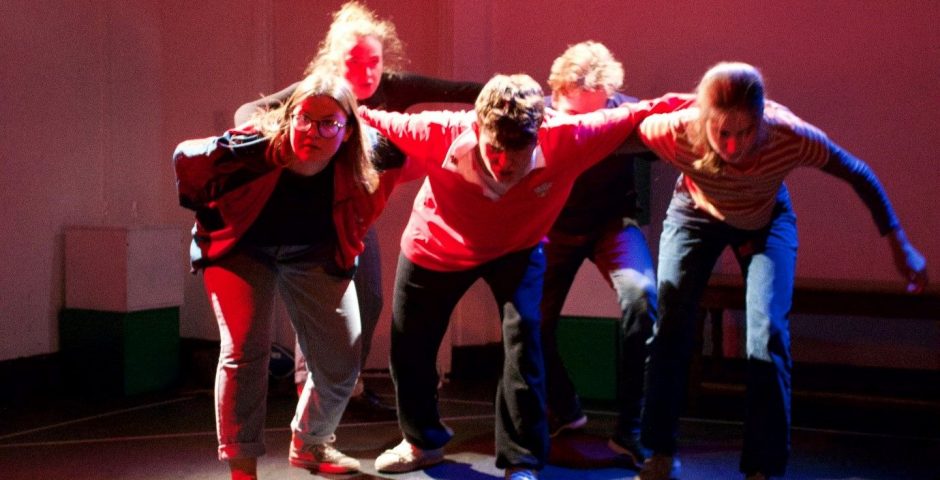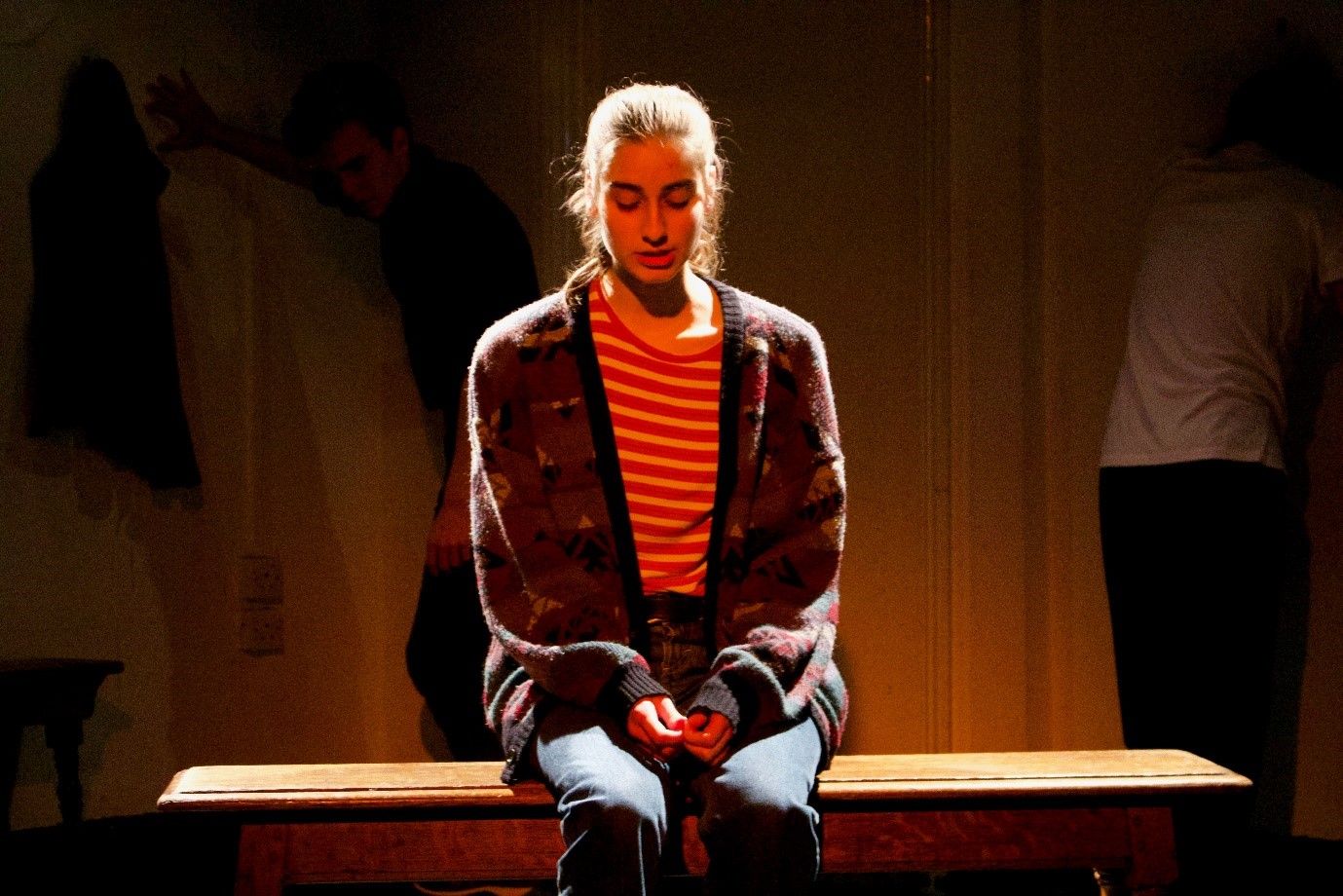
Review: Crouch Touch Pause Engage
A dynamic depiction of rugby legend Gareth “Alfie” Thomas and his journey towards self-acceptance
From the opening when the five-strong cast exploded onto the stage in a ruckus of noise and energy, to the end when a dynamic training session punctured with yells comes together in a huddle, Crouch Touch Pause Engage held my gaze and didn’t let it drop.
The play is structured around the story of Gareth “Alfie” Thomas, a Welsh rugby legend and now prominent LGBT activist whose struggle with his sexuality threatened to overturn his career and his life. Alfie’s story is the central force of the play, however, one of the most engaging aspects of the writing is its focus on seemingly peripheral characters, whose only link to Alfie seems to be that they are from Bridgend, his hometown and setting of much of his rugby career. Nonetheless, it is increasingly clear that the two schoolfriends, Darcey and Meryl, have their own parallel issues, and their stories are just as compelling as Alfie’s, which makes for a lovely penultimate scene where the two girls relate their stories to Alfie himself, bringing all three strands of the plot together. The non-linear structure of the play is handled expertly by director Phoebe Rowell John, as the audience is constantly being fed tidbits of information about both Alfie and the two girls, allowing for complex and intriguing characterisation.

Meryl (Freya Ingram) (Credit: Emily Webster)
These fascinating characters are animated by the ambitious choices of the directing team. I particularly appreciated the device by which each member of the cast takes it in turns to play Alfie at different stages in his life, reflecting both his journey and their skill in maintaining the continuity of a single character across different actors. Likewise, physical theatre is used to good effect in representing both the rugby matches in which Alfie excelled, and the challenges he faced concerning his sexuality. The verbal slurs thrown at him by homophobic fans are translated into tackles and shoves from the other actors, effectively conveying the immense pressure of being the first prominent gay Welsh rugby player. The use of physical theatre throughout the play, particularly involving the benches and metal cupboards which made up most of the props, is well-judged – one of the most jarring moments is when Meryl’s parents are arguing and one of the actors beats on a cupboard to accompany the ‘rising tide of anger’ in the scene.
Strong acting is central to this play, and none of the cast disappoints. All five actors take on the role of Alfie with vigour, each bringing out a certain sweetness and positivity which cannot be undermined even by the challenges he faces. Especially impressive for me are Harriet Wilton as Darcey and Freya Ingram as Meryl – they command a range of emotions with an ease which is gripping to watch. Wilton’s depiction of Darcey is fascinating, as she is revealed to be more than the lively persona she appears to be at the beginning of the play; gradually we are shown how she suffers with mental illness and eventually learns to live with it, excelling in a women’s rugby team.

Benjamin Gibson, Brandon Lino, Georgina Deri (Credit: Emily Webster)
Deasil Waltho’s lighting design further enhances the quality of the production by helping to round out Alfie’s character. The reddish tones when Alfie reveals how he would lie about his identity when looking for anonymous sex suggest his discomfort with the deception he is forced to maintain as a closeted gay man, compared with the warm yellow pool of light that bathes him as he tenderly discusses the men he finds attractive. One of the most interesting moments in terms of lighting is when Alfie is describing what it’s like to play in front of a crowd of thousands, and a spotlight is trained on the audience, allowing us to experience the blinding lights of fame and celebrity.
Overall, this was a joy to watch: energetic, dynamic, and uplifting. The only criticism I would have is that the moments when the cast break into song could be integrated slightly better, since they seem quite incongruous and at odds with the fluid movement of the rest of the piece, but this is a quibble.
This play is certainly not to be missed – grab your tickets while you can!
4/5









































